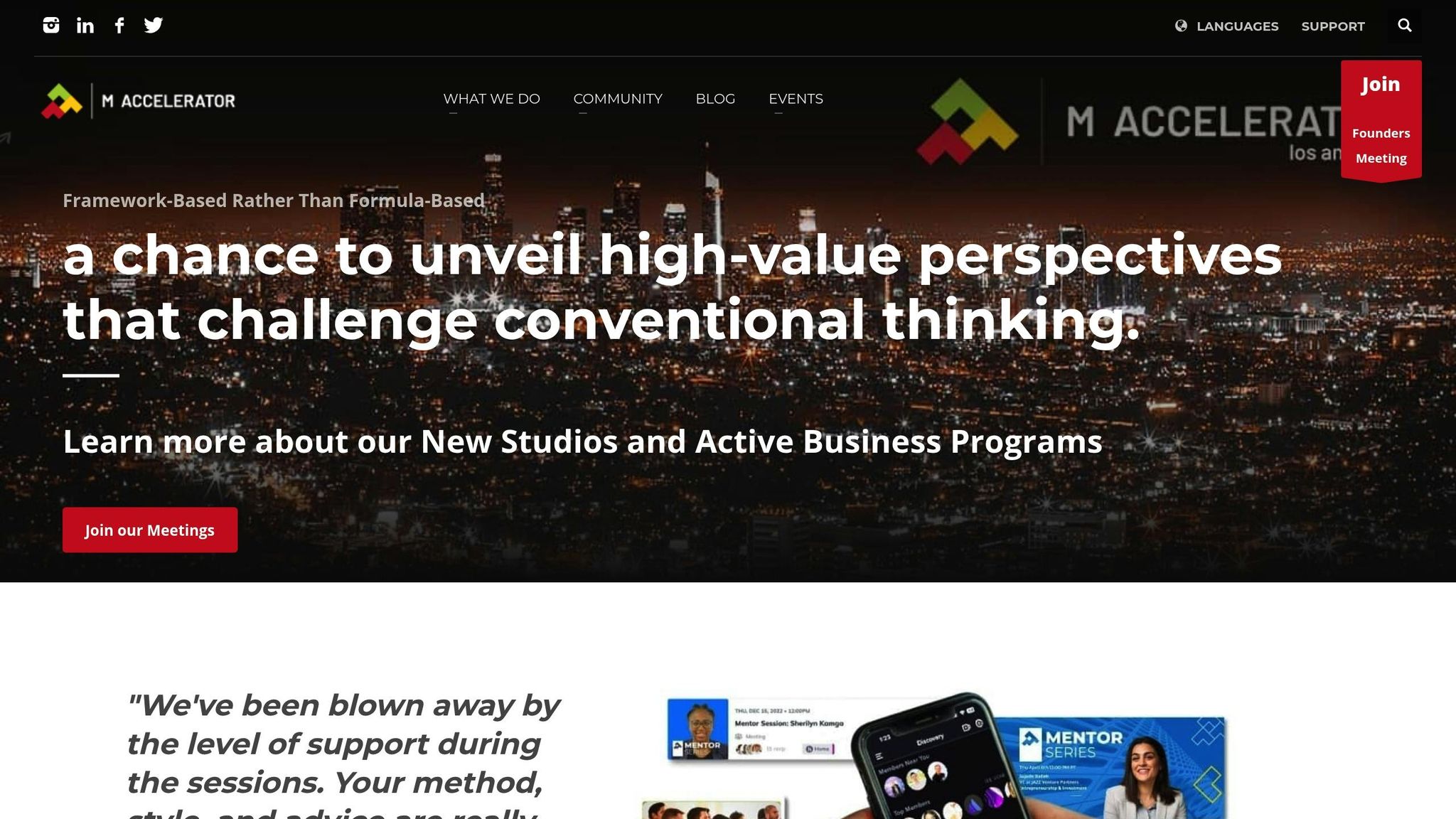
Anti-dilution terms can significantly impact your equity as a founder, especially during down rounds when your company raises funds at a lower valuation. These provisions protect investors but often dilute founder ownership. To navigate them effectively:
- Understand key types:
- Full Ratchet: Strict, maximizes investor protection but heavily dilutes founders.
- Weighted Average: More balanced, adjusts ownership proportionally.
- Broad-Based: Includes options and warrants, reducing founder dilution.
- Narrow-Based: Excludes them, increasing dilution impact.
- Prepare by modeling scenarios: Simulate funding outcomes using cap table and waterfall models to see how these terms affect your ownership.
- Negotiate for fairness: Push for weighted average terms over full ratchet, and clarify language in term sheets to avoid surprises.
- Seek legal help: Work with startup-focused attorneys to ensure terms align with your goals and market standards.
Anti-dilution clauses can shape your company’s future. By understanding their mechanics and negotiating strategically, you can protect your equity while maintaining investor confidence.
What Anti-Dilution Provisions Are and How They Work
Definition and Purpose of Anti-Dilution Provisions
Anti-dilution provisions are clauses in investment agreements designed to protect investors when a company issues new shares at a price lower than what they initially paid. These provisions typically come into play during down rounds, which occur when a company raises funds at a reduced valuation compared to previous rounds.
For example, imagine an investor purchased preferred shares at $10 each during a Series A round. Later, the company raises a Series B round, but the share price drops to $5 due to market conditions. Anti-dilution provisions allow the investor to adjust their ownership by converting their existing shares into additional shares at the lower price. This adjustment ensures the investor maintains a consistent ownership percentage, but it shifts the dilution impact to common shareholders – often including founders and employees.
While these provisions help safeguard investor interests and encourage further investment, they can significantly affect founders and employees by diluting their equity. To fully grasp their implications, it’s essential to understand the two main types of anti-dilution provisions: full ratchet and weighted average.
Full Ratchet vs. Weighted Average Anti-Dilution
The structure of anti-dilution provisions can have a big impact on a founder’s equity. The two most common approaches – full ratchet and weighted average – operate differently and lead to varying outcomes in down rounds.
Full ratchet anti-dilution is the stricter of the two. It allows investors to adjust their share price as if they had originally invested at the lowest price offered in any subsequent down round, regardless of the round’s size. This approach offers maximum protection for investors but can significantly dilute founders and employees.
Here’s an example: An investor holds 1 million preferred shares purchased at $2 per share. If the company later raises funds at $1 per share, the investor can convert their shares to 2 million shares, effectively doubling their ownership. This adjustment happens no matter whether the company raised $100,000 or $10 million in the down round.
Weighted average anti-dilution, on the other hand, takes a more measured approach. It factors in both the price drop and the amount of capital raised during the down round. A formula determines the new conversion price by accounting for the proportion of new shares issued relative to the company’s existing capitalization.
The weighted average formula generally works like this:
The new conversion price = the old price × (existing shares + new shares if raised at the old price) ÷ (existing shares + actual new shares issued).
| Aspect | Full Ratchet | Weighted Average |
|---|---|---|
| Investor Protection | Maximum protection | Moderate protection |
| Impact on Founder Equity | Severe dilution | Moderate dilution |
| Calculation Method | Simple price adjustment | Formula-based weighting |
| Future Investor Appeal | Often viewed negatively | Generally more acceptable |
The consequences for founders can be stark. For instance, a founder with 25% ownership might see their stake drop to 10% or less under a full ratchet provision in a significant down round. With weighted average protection, that same founder might retain 18–20% ownership instead.
Among weighted average methods, broad-based weighted average is often more favorable to founders. It includes employee stock options and warrants in the calculation, spreading the dilution impact across a larger pool of shares. In contrast, narrow-based weighted average excludes these, resulting in a higher adjustment for investors.
In today’s funding landscape, most experienced lawyers and investors lean toward weighted average provisions, as they create a more balanced outcome for all parties. Full ratchet provisions, while less common, may still appear in specific scenarios, such as bridge rounds or when investors hold significant bargaining power.
Understanding these provisions is critical for founders. The type of anti-dilution clause you agree to now could significantly shape your ownership and control in future funding rounds, especially if the company faces valuation challenges.
How down rounds impact cap tables (modeling anti-dilution)
How to Negotiate Fair Anti-Dilution Terms
Negotiating anti-dilution terms can be a balancing act. It requires preparation, strategic foresight, and a solid grasp of how these provisions might shape your company’s future. The goal is to strike an agreement that safeguards both founders and investors, ensuring a fair outcome for everyone involved. To prepare, simulate future funding events using detailed cap table models – this will give you a clearer picture of potential outcomes before stepping into negotiations.
Model Different Funding Scenarios First
Before diving into talks, it’s crucial to understand how various anti-dilution provisions could impact your ownership under different funding scenarios. This is where cap table modeling becomes your best friend. It lets you project ownership structures across multiple funding rounds, helping you assess risks and outcomes.
Start by running simulations for a range of scenarios: baseline, best-case, worst-case, and moderate-case funding needs. For each, compare how full ratchet and weighted average provisions would affect founder dilution. Include factors like equity ownership percentages, the influence of different security types, and possible conversion events.
For liquidation scenarios, waterfall modeling is essential. It maps out how proceeds would be distributed among shareholders based on their contractual rights, especially during down rounds when anti-dilution provisions come into play.
You’ll also need to dive into conversion modeling to understand how convertible securities transform into equity. For example, let’s say your company issued $500,000 in convertible notes with a 20% discount and a $5 million valuation cap, and you’re raising Series A at a $10 million pre-money valuation. The effective conversion price would be the lower of the discounted price ($1.60 per share) or the capped price, resulting in approximately 312,500 shares for noteholders.
Push for Weighted Average Over Full Ratchet
When it comes to anti-dilution provisions, weighted average terms – especially broad-based ones – are far less punishing than full ratchet terms. While full ratchet provisions can significantly dilute founder ownership, weighted average adjustments are more proportional to the amount of capital raised. This balance is critical for maintaining founder incentives and keeping your company attractive to future investors.
For instance, under full ratchet terms, raising capital at half your previous valuation could double an investor’s share count, slashing founder ownership from 40% to 15% or even less. Weighted average terms, on the other hand, distribute dilution more evenly, offering a fairer outcome.
When negotiating, present scenarios to illustrate your point. Show investors how weighted average provisions still protect their interests while avoiding extreme dilution. Many experienced venture capitalists prefer these terms because they reflect thoughtful structuring and simplify future funding rounds.
Make Sure Term Sheet Language Is Clear
Ambiguity in anti-dilution clauses can lead to unpleasant surprises during future funding rounds or exit events. Clarity is key. Insist on precise definitions for trigger events, calculation methods, and exceptions to anti-dilution protections.
Pay close attention to the events that activate anti-dilution adjustments. Most provisions apply to new equity issuances at prices below the investor’s original purchase price. However, overly broad language in some term sheets might trigger adjustments for routine actions like employee stock option grants, warrant exercises, or stock splits.
Ensure the term sheet specifies whether the anti-dilution protection uses narrow-based or broad-based weighted average calculations. The difference can have a significant impact on dilution outcomes. Also, explicitly list carve-outs and exceptions – such as employee stock option pools, stock splits, or strategic partnership equity grants – to avoid triggering adjustments unnecessarily.
Finally, define the duration and scope of the anti-dilution protection. Some provisions apply only to the next funding round, while others last until an IPO or acquisition. Understanding these timelines will help you plan your fundraising strategy and evaluate dilution risks over time.
Get Legal Help from Startup Experts
Once you’ve modeled scenarios and clarified the term sheet language, bring in legal experts to protect your interests. Startup attorneys with experience in venture financing can benchmark proposed terms against market norms and flag problematic clauses early on.
Your legal team should review not just the anti-dilution provisions but also their interplay with other key elements like liquidation preferences, participation rights, and board composition. Sometimes, investors may be willing to compromise on anti-dilution terms in exchange for stronger rights in other areas.
Don’t wait until the term sheet is finalized to involve legal counsel. Engage attorneys early in the process so they can help structure your negotiations and catch potential issues before they escalate. This proactive approach often reduces legal fees and avoids costly revisions down the line.
If possible, work with lawyers who have experience in your industry and understand your company’s stage of development. Their insights can be invaluable when assessing whether proposed terms align with common practices in your sector.
sbb-itb-32a2de3
Mistakes to Avoid When Dealing with Anti-Dilution Terms
Navigating anti-dilution terms carefully is essential to protecting your equity and ensuring your company remains attractive to future investors. Missteps during negotiations can lead to excessive dilution, tangled cap tables, and difficulties securing funding down the road.
Identifying Problematic Anti-Dilution Clauses
When reviewing anti-dilution provisions, be on the lookout for terms that could undermine your equity position or complicate future fundraising. For instance, full ratchet anti-dilution provisions can severely harm founder equity during down rounds, as they reset the price of all previous shares to the lowest valuation, resulting in significant dilution.
Another red flag is super pro-rata rights, which allow investors to increase their ownership beyond their proportional share in future funding rounds. This can signal a lack of long-term commitment and create imbalance in your cap table. Similarly, provisions granting investors excessive veto power over critical business decisions can stifle your company’s flexibility and make future funding rounds more challenging.
Pay close attention to how your option pool is structured. If employee stock options are calculated as part of the pre-money valuation, it can magnify the impact of dilution on founders when combined with aggressive anti-dilution measures.
The Importance of Dilution Modeling
A major mistake founders make is failing to model the impact of anti-dilution provisions before signing a term sheet. Without a clear understanding of how these terms affect ownership, you risk agreeing to terms that could significantly erode your equity.
Run detailed dilution models to evaluate potential outcomes. Simulate scenarios like baseline funding, best-case and worst-case outcomes, and moderate funding rounds to see how ownership percentages shift. Don’t rely solely on advisors – verify the numbers yourself to ensure you’re fully informed.
If your funding involves convertible instruments like SAFEs, model both pre-money and post-money scenarios, as these have different dilution implications. Additionally, use waterfall models to simulate liquidation scenarios, giving you a clearer picture of how proceeds will be distributed when anti-dilution provisions come into play.
Terms That May Deter Future Investors
Agreeing to overly aggressive or ambiguous anti-dilution terms can make your company less appealing to future investors. For instance, narrow-based weighted average anti-dilution provisions can lead to more significant dilution compared to broad-based methods, making your cap table less attractive.
Avoid terms with vague triggers that could create uncertainty for future investors. For example, if routine actions like issuing employee stock grants could activate anti-dilution clauses, it may raise concerns about unpredictable dilution. The terms you agree to now will set the tone for future funding rounds, so it’s important to align them with long-term growth and stability.
Getting Professional Help with Anti-Dilution Negotiations
Anti-dilution negotiations are no walk in the park, especially for first-time founders. These provisions are complex, and their impact on your equity and future fundraising efforts can be far-reaching. That’s why having professional guidance isn’t just helpful – it’s essential.
How Startup Coaching Programs Support Term Sheet Negotiations
Startup coaching programs equip founders with the tools and strategies to tackle anti-dilution negotiations effectively. These programs don’t just explain what anti-dilution provisions are – they show you how these terms fit into your overall funding strategy and long-term business goals.
One key area where these programs shine is cap table modeling. By simulating different funding scenarios, you can see how various decisions could affect your equity. This hands-on understanding helps you make smarter, more strategic choices during negotiations.
Another major benefit is learning to understand investor expectations. Knowing why investors push for certain protections allows you to propose alternatives that align with their goals while safeguarding more of your equity. Instead of feeling like a battle, negotiations can become a collaborative effort to find solutions that work for both sides.
Coaching programs also help refine your pitch deck. A strong pitch deck that clearly articulates your valuation and growth potential can significantly influence the anti-dilution terms investors are willing to accept. These programs guide you in presenting your business from multiple angles, helping you strengthen your negotiating position.
By focusing on your validated business model, coaching programs ensure you don’t make short-term compromises that could hurt your long-term growth. This strategic approach keeps you grounded while navigating the complexities of funding decisions.
Building on these insights, M Accelerator offers a comprehensive framework that takes your negotiation strategy to the next level.
M Accelerator‘s Approach to Investment Readiness

M Accelerator takes a holistic approach, combining strategy, execution, and communication to help founders achieve better outcomes in anti-dilution negotiations. This approach ensures your funding discussions align with your broader business goals and growth plans.
The program’s track record speaks volumes: over 500 founders supported and more than $50 million in funding facilitated. With this experience, M Accelerator provides practical, actionable insights into what works in negotiations and which terms lead to successful outcomes for founders.
One standout advantage is access to a network of 25,000+ investors. This network gives you valuable context about market standards and investor preferences across industries and stages. Plus, having multiple potential investors in your corner gives you leverage, reducing the pressure to accept unfavorable terms.
M Accelerator’s industry-agnostic approach is another strength. Whether you’re in cleantech, web3, sports tech, or another field, the program helps you tailor anti-dilution strategies to your specific market dynamics. What works in one industry might not work in another, and this broad perspective ensures your strategy is well-suited to your niche.
The Elite Founder Team mastermind program connects you with other entrepreneurs who’ve faced similar challenges. Learning from peers who’ve successfully navigated anti-dilution negotiations adds a layer of real-world insight that complements the formal coaching.
M Accelerator also emphasizes measurable results and customized strategies. By aligning your negotiation approach with your growth trajectory and market position, the program ensures the terms you negotiate support your path to scaling effectively.
Finally, the program offers technical implementation support through GTM Engineering. This ensures your growth projections are backed by solid systems and processes. When you can demonstrate a clear plan for execution, investors are more likely to agree to terms that favor founders.
Conclusion: Balance Equity Protection with Investor Relations
Navigating anti-dilution negotiations is about striking the right balance – protecting your equity while maintaining strong investor relationships. This approach lays the groundwork for steady growth and smoother fundraising rounds in the future.
Take the time to model different funding scenarios to understand how various anti-dilution provisions could affect your ownership. As discussed earlier, running the numbers for both up rounds and down rounds gives you the clarity needed to negotiate effectively. This kind of preparation ensures you’re ready for any funding situation.
It’s worth noting that weighted average provisions are often more favorable to founders compared to full ratchet provisions, which can be overly rigid. Market standards tend to lean toward this middle ground, giving you a basis to advocate for terms that benefit both sides without unnecessary conflict.
Open and honest communication is essential. When you can clearly explain your reasoning and show that you’ve carefully thought through the implications, investors are more likely to collaborate with you on fair terms. Expert guidance – whether from legal advisors or programs like M Accelerator – can also be a game-changer, helping you navigate these complex discussions with confidence. Keep in mind that overly aggressive anti-dilution clauses can scare off future investors, so finding a balanced approach is crucial for long-term success.
Fair and well-structured anti-dilution terms not only protect your company but can also attract the right partners to help you grow. When both founders and investors feel secure and aligned, it fosters a productive partnership that benefits everyone involved.
Approach negotiations prepared and supported, aiming for terms that safeguard your interests while laying the foundation for strong, lasting relationships with your investors.
FAQs
How can founders negotiate weighted average anti-dilution provisions instead of full ratchet terms?
When negotiating for weighted average anti-dilution provisions instead of full ratchet terms, founders should highlight the fairness of this approach. Unlike full ratchet terms – which can heavily dilute a founder’s ownership – weighted average provisions take both the new share price and the size of the investment into account, creating a more balanced adjustment to equity.
Founders might also push for broad-based weighted average provisions, which consider a larger pool of shares. This approach further minimizes the impact of dilution and protects the founder’s equity stake. By emphasizing the fairness of these provisions, founders can demonstrate how they better align the interests of both founders and investors. Open communication and a clear explanation of these terms can pave the way for a mutually beneficial agreement.
What should founders watch out for when negotiating anti-dilution terms in investment agreements?
When discussing anti-dilution terms, founders need to tread carefully. Overly restrictive provisions can make it harder to secure future funding. Why? Because such clauses might scare off potential investors who worry about their own ownership stakes or control being diminished. On top of that, these terms can strain relationships between founders and existing investors, making future funding rounds more complex.
Take full-ratchet provisions, for example – they can drastically reduce a founder’s equity in later funding rounds. To steer clear of these challenges, focus on crafting terms that strike a balance. And don’t go it alone – consult with legal or financial experts to safeguard your company’s ability to grow and adapt in the long run.
How can programs like M Accelerator help founders navigate anti-dilution negotiations?
Programs like M Accelerator provide founders with the skills and strategies to navigate anti-dilution negotiations with confidence. These programs dive into critical areas, including understanding what drives investor decisions, evaluating financial and strategic objectives, and crafting strong communication approaches to protect equity.
By focusing on collaborative negotiation methods, they help founders establish trust with investors while working toward outcomes that benefit both sides. Additionally, founders gain insights into securing fair anti-dilution provisions, ensuring their ownership stakes remain protected during funding rounds.




